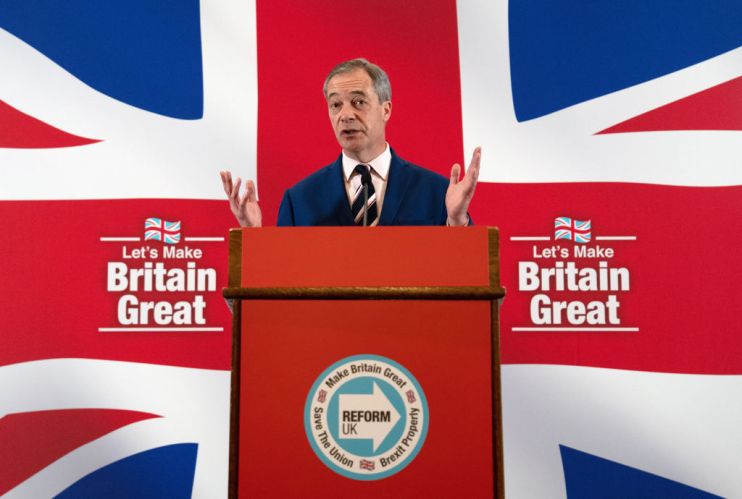Reform UK is a ragbag of a party, but it could well prove a destructive force

What Nigel Farage’s Reform UK actually wants remains unclear, but it is likely to prove a destructive force, writes Eliot Wilson
Opinion polls have had the same headline for 18 months now: Labour in the lead, often by a substantial margin. Looking further down the graph, however, shows a more recent development. Gradually, Reform UK, the right-wing populist reboot of the Brexit Party, has been gathering support.
The scale is very modest, and Reform has not so far risen higher than 11 per cent. In the past year its support has been volatile, sometimes falling as low as two per cent. However, the party’s leader, Richard Tice, is upbeat and points to the fact that they have sometimes outpolled the Liberal Democrats to reach third place.
Last week Tice held a press conference to launch Reform’s 2024 effort, and it was widely rumoured that Nigel Farage, still fresh from the I’m A Celebrity jungle, would be unveiled as a major part of the party’s election campaign. Farage was one of the founders of Reform UK, serves as its honorary president and is really the party’s only active figure with a national profile. (In fact, Companies House will reveal that the only person with significant control of “Reform UK Party Limited”, including the right to appoint and remove directors, is one Nigel Paul Farage.)
Farage did not appear, but Tice continues to tease: “a good poker player does not show his hand early”. There is certainly serious intent. While its Brexit Party predecessor only fielded 275 candidates in 2019, Tice has pledged to contest every seat in Great Britain at the next election, and already has more than 600 candidates in place. Reform claims to have the Conservatives and Labour equally in its sights, warning of “Starmergeddon” if Labour should win but dismissing both parties as “two sides of the same socialist coin”.
Let us be realistic: the chances of Reform making an electoral breakthrough are vanishingly small. I suspect they will not win a single seat at the General Election, and the fact that Farage has backed away from a candidacy himself suggests he knows this too. He has already stood for Parliament seven times over the past 30 years without success. That does not mean that Reform will have no impact: if the party is polling even at 10 per cent, those votes will affect the results in dozens of constituencies.
For all of Tice’s hostility towards the government, it is clear that Reform will probably take more votes from the Conservatives than from Labour. It is, after all, a right-wing party, albeit one with a rather jumbled, saloon-bar policy platform: cut taxes, achieve net zero immigration, take an axe to the civil service and the BBC, use private sector healthcare to get waiting lists to zero, drive the “woke police” out of schools. Yet logic tells us that more than 600 Reform UK candidates make a Labour victory more, not less, likely, and might amplify the size of that victory.
What does the party want to achieve? Some observers seem to think that Reform is trying to pressure the government, holding Rishi Sunak’s feet to the fire on central right-wing issues like taxation and immigration. But that has a natural limit. Sunak is under enough pressure from within his own Conservative Party, and, in any case, Reform could only exert influence if there was a potential pay-off of some of its candidates standing down. Tice has been clear this will not happen.
There may be a distinction between what Reform and its supporters would like to happen and what will flow inexorably from their actions. I cannot see them being anything but a destructive force: unable to win any representation, they could cost the Conservatives dozens of seats. There is no reason for Richard Tice to have either affection or mercy for the struggling government, but he should be clear in his own mind as to what is likely to happen. Absent a realignment on the scale of the Liberal collapse of the 1920s, a significant Reform vote across the country means only one thing: advantage Starmer.